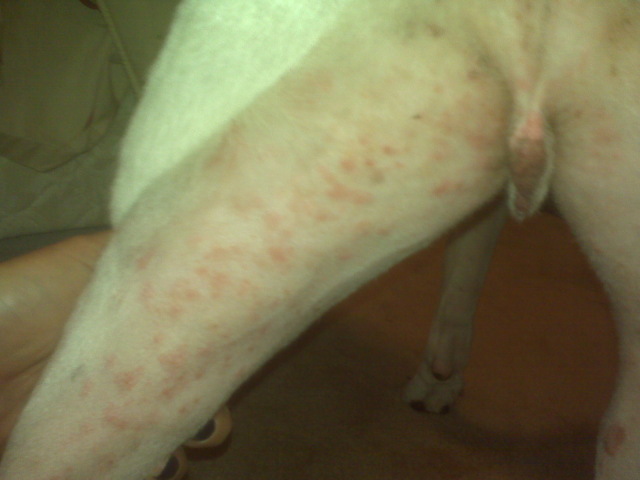QuestionHello Sir. I have a female Neapolitan Mastiff. She is now 21 months old. Quick background on the health condition - at 9 months of age immediately after the 1st heat cycle, I have noticed reduction in her food intake and vaginal discharge and have referred to my vet. He has suggested some medication and advised to get her mated during second heat. Just before the tentative timelines for the second heat cycle and also while she is in heat I have had her examined and as advised by my vet, I got her mated. However, 3 wks after mating she again had a discharge and when enquired, I was told that she is suffering from Pyometra (Open). She was put on antibiotics (Potacef & Amikacin) injections and was advised to get her mated again during the 3rd heat, but with a different male. 2 wks back she got mated (3rd heat cycle) and now I once again notice the same type of discharge.
Is there any medication available for treating Pyometra at all, other than the option of spaying? and what would be success rate of the dog getting pregnant? This time (next 4-5 months) I'm willing to make any/every possible effort as has always been to get the problem corrected since I have already paid stud fees twice and more than the money, It's the pain which my pet is going through everytime. Any help you can provide in this regard will be highly appreciated. Thanks in advance.
AnswerHi Phani,
There is a medical approach to treating Pyometra you may want to try, it involves using a hormone called Prostaglandin F2 Alpha. Prostaglandins are a group of hormones that reduce the blood level of progesterone, relax and open the cervix, and contract the uterus to expel bacteria and pus. They can be used successfully to treat this disease, but they are not always successful and they have some important limitations you should know about:
1. They cause side-effects of restlessness, panting, vomiting, defecation, salivation, and abdominal pain. The side-effects occur within about 15 minutes of an injection and last for a few hours. They become progressively milder with each successive treatment and may be lessened by walking the dog for about 30 minutes following an injection.
2. If there is no clinical improvement after about 48 hours of receiving the injection the dog would be considered a poor candidate for the treatment and should be spayed.
3. Because they contract the uterus, it is possible for the uterus to rupture and spill infection into the abdominal cavity. This is most likely to happen when the cervix is closed, but it's still a risk with dogs that have an open cervix, as your dog has.
There are some important statistics that you should know about this form of treatment:
1. The success rate for treating open-cervix Pyometra is 75-90%.
2. The rate of recurrence of the disease is 50-75%.
3. The chances of subsequent successful breeding is 50-75%.
Dogs with an open cervix that are treated medically with Prostaglandin generally have a good response to treatment, so this might be something you'd want to try. If it doesn't work for your dog, then being a mother just isn't in the cards for her and she should be spayed. Spaying your dog will give her and you years of joyful companionship free from disease and pain.
Best of luck,
Patti

 18month old sweet shih tzu starting to growl at me
Question
our family
Hi Valentina,
I have recently beco
18month old sweet shih tzu starting to growl at me
Question
our family
Hi Valentina,
I have recently beco
 Large dog with possible poison ivy
Question
Guero
My poor dog has led a rough life to date
Large dog with possible poison ivy
Question
Guero
My poor dog has led a rough life to date
 Rescued Shiba with ISSUES
Question
Shredder
Kristin,
I consider myself an experie
Rescued Shiba with ISSUES
Question
Shredder
Kristin,
I consider myself an experie
 old age dog
Question
he was barking!
I have a Dog who is a german s
old age dog
Question
he was barking!
I have a Dog who is a german s
 Puppy wont come!
QuestionCapone & Rascal
QUESTION: Help! &nbs
Puppy wont come!
QuestionCapone & Rascal
QUESTION: Help! &nbs